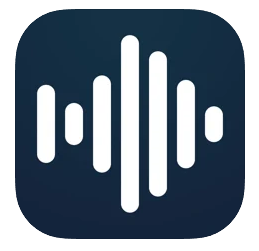Temporarily able-bodied, sometimes referred to as TAB, refers to the notion that all able-bodied people will experience a disability (whether permanent or temporary) during their lifetime, due to aging, illness, or injury.
I’m not a huge fan of the TAB lingo, as I think it’s a bit inaccurate and doomsdayish. Let’s not make life accessible out of fear for our futures; let’s make life accessible so everyone can live their best life. Oftentimes, disability is caused by society putting up barriers—such as installing stairs rather than ramps, having fluorescent lights rather than filtered ones, or not having important documentation written in plain language.
Putting my grievances with TAB as nomenclature aside, let’s talk about the fact that people do experience temporary or permanent disabilities they aren’t born with.
Navigating a new world
Many people born with disabilities develop skills to work around the able-bodied or neurotypical world; however, people who are newly experiencing a disability in adulthood have not built up these skills throughout their lifetime. This can be jarring to navigate. It creates physical barriers with the world where there were once none, social barriers with loved ones, and frustrations with not being able to complete daily tasks in the same way they used to.
A common challenge for people newly experiencing disabilities is with speech, due to a stroke, surgery, or another medical issue that leaves them unable to voice their needs for a period of time.
Speak
That’s where Speak comes in. Speak is a free speech synthesizer app for iOS (iPad and iPhone). Users enter text in the text box, and Speak reads the text aloud. The app is incredibly simple, yet flawless.
The app is free and includes the following features:
Multiple languages. Not everyone speaks English! Twenty-seven languages are available.
Multiple voices. Most people want a synthesized voice that sounds like them (age, gender, accent, etc.). Speak offers multiple voices for most languages.
Scaleable speech pitch. This feature changes the pitch of the user’s synthesized voice. It enables the voice to sound more like the user and makes it more accessible to listeners who are able to hear lower pitches better (especially older adults losing their hearing).
Scaleable speech rate. Users can have the speech output quickened or slowed down, based on their preferences and listeners.
Repeat speech option. People can be taken off guard the first time they hear a speech synthesizer. If a user is in a new place, they may want to repeat a phrase several times. Also it’s just fun to harass people sometimes.
Favorite phrases. Users can save phrases that have been synthesized as “favorites.” Favorites can simply be tapped to be spoken again.
History of speech stated. The entire history of synthesized speech can be viewed. This can be useful if people would like to recap conversations with others, especially with caregivers or loved ones regarding recent medical conversations.
An image of the Speak interface:
Speak isn’t a speech app for everyone, and it shouldn’t be. There are a ton of different needs when it comes to speech synthesizing that one application simply will not be able to meet. Speak works well for people who are able to type into their phone or tablet and need speech to be generated for others at a close distance. Speak has been used for a variety of conditions and diagnoses:
The following are examples for using Speak out in the world:
Ordering at a coffee shop or restaurant. You can even save your favorite orders!
Discussing a plan of care with the medical team after surgery.
Giving quick “yes,” “no,” and “maybe” responses. You can save these to favorites for a quick tap.
Conducting general conversation, if you’re a quick typer.
Although Speak is relatively simple, it is effective at quickly breaking down communication barriers for people who type and need a quick and cost-effective solution.
Takeaway
Our ability to complete activities of daily living changes throughout the span of our lifetime, for every person. Acknowledging that can bring positivity, awareness, acceptance, growth, and innovation (for my startup readers)—removing the stigma that’s attached to TAB.
Speak is just one of many tools to help us along our life path.




